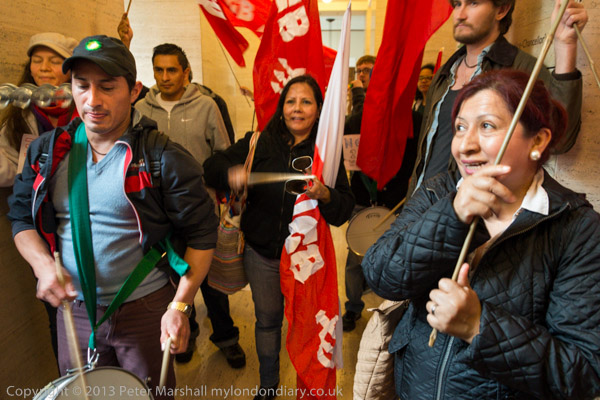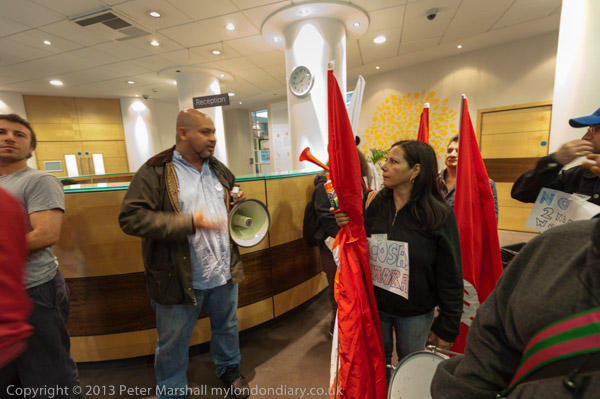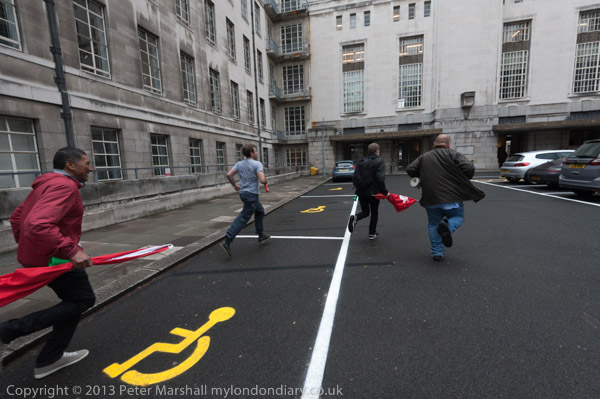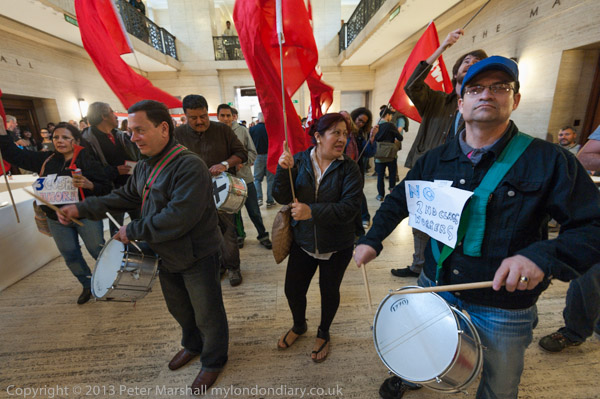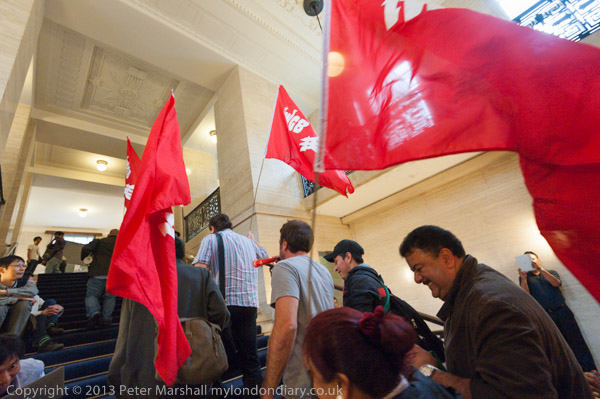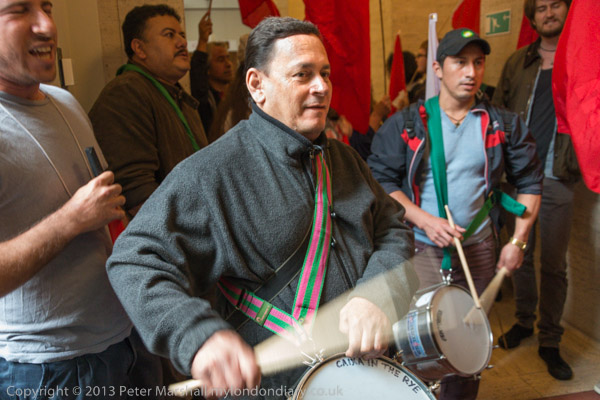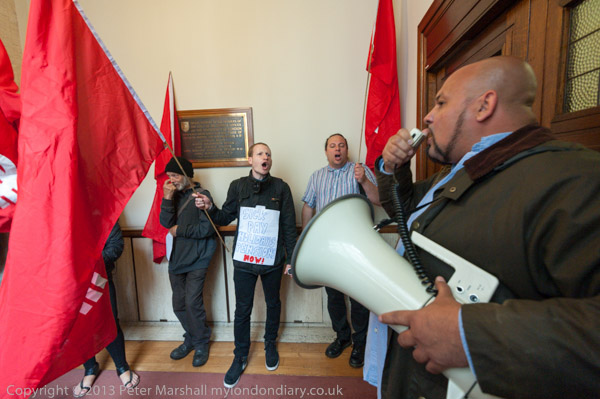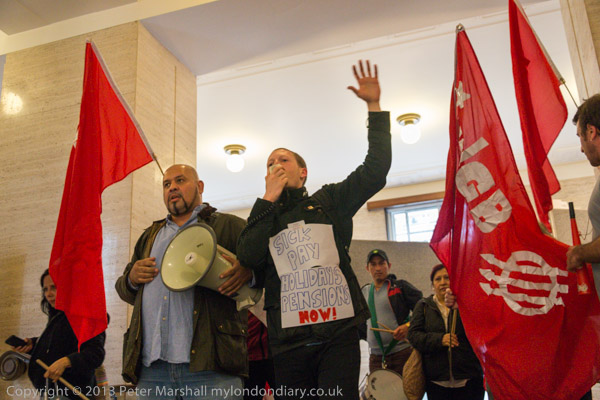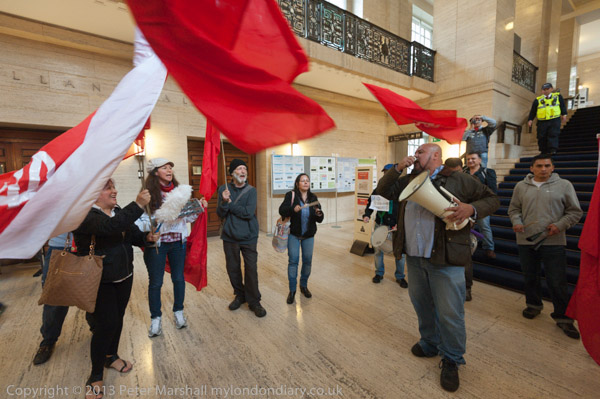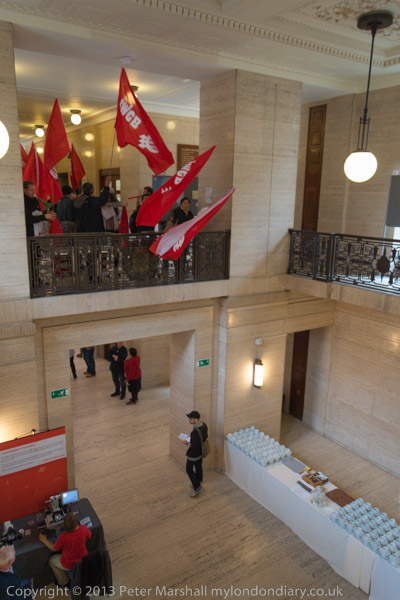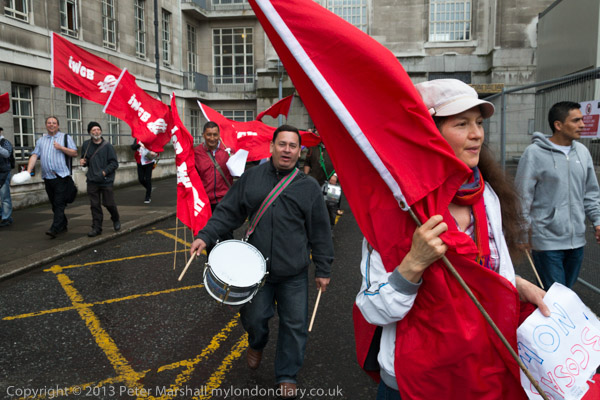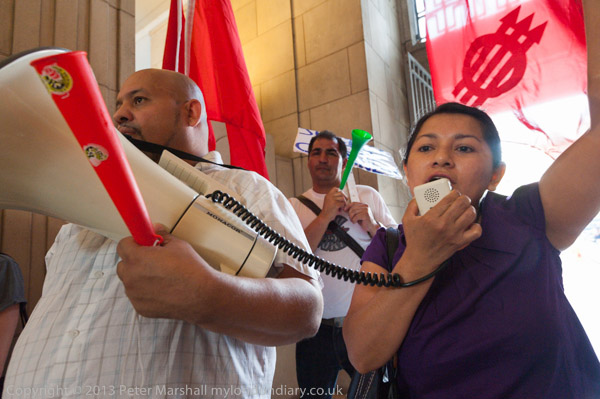
3 Cosas at London University 2013: The protest around the University of London Senate House on Wednesday 17th July 2013 was part of a long running campaign to get all workers at the university decent pay and conditions of service. At it’s root was the attempt by the university to dissociate itself from any responsibility for many lower-paid staff – cleaners, security, catering – whose work is essential to the running of the university by employing them indirectly through outsourcing companies.
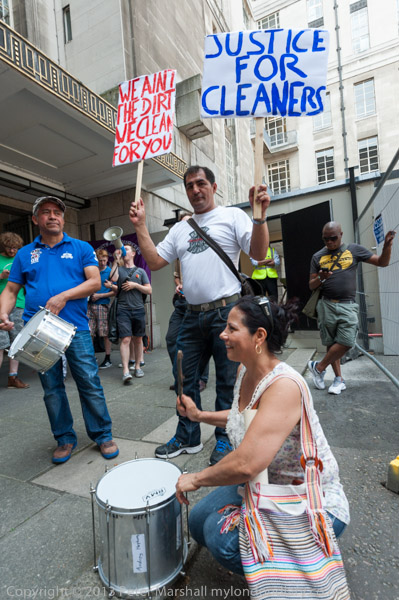
These staff work alongside others directly employed by the university who get good contracts with decent provision of pensions, holiday entitlement and sickness pay, but are on rock-bottom contracts, receiving only the statutory minimum requirements. Things are usually made worse by bullying managers from the outsourcing companies who overload the workers and often fail to provide proper safety equipment for the jobs.
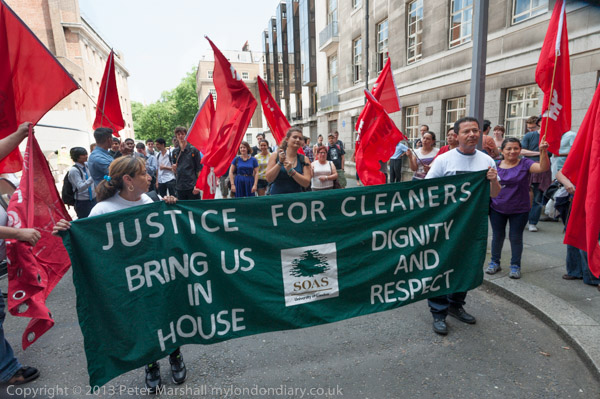
Some Unison branches, along with students from the University of London Union and some teaching staff and others from neighbouring London Universities had worked successfully together to improve wages and conditions of these lower paid staff, with protests in 2010-2011 getting the London Living Wage for the workers. They had now joined together to campaign for ‘3 Cosas’ – the three causes of sick pay, holiday pay and pensions, with the Spanish title reflecting the background of many of the university cleaners in London’s Latin-American community.
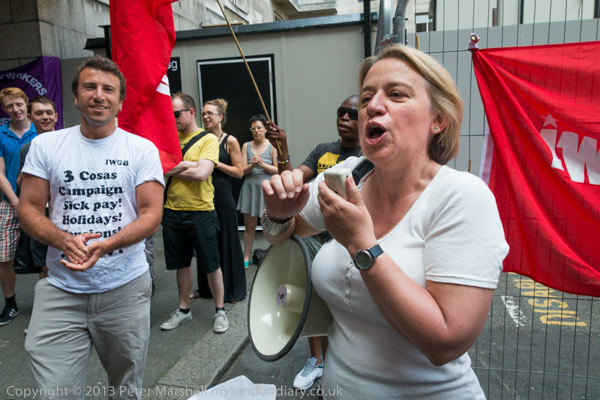
Unison nationally had publicly dissociated itself from the protests by some local branches and had failed to support either for the successful Living Wage Campaign or the new 3 Cosas campaign. The Senate House Unison Branch had recently elected branch officers who supported the campaigns but the results of the election were annulled by the Unison union leadership.
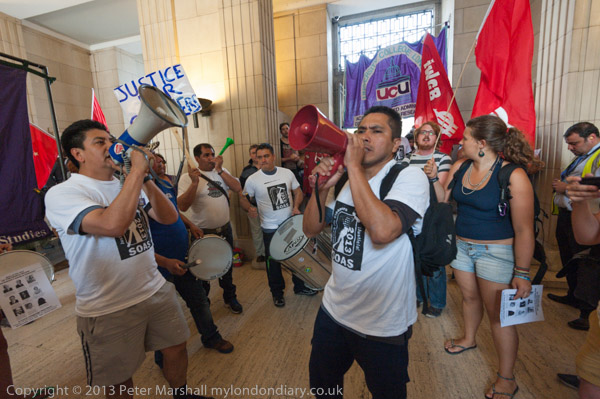
This led to almost all of the outsourced workers and some of those directly employed leaving Unison in protest, joining the grass roots IWGB which had been active in its support and now represented a majority of the outsourced workers. Despite this the university refused to engage with the IWGB, continuing to recognise the far more submissive Unison who seem not to care about the low paid workers.
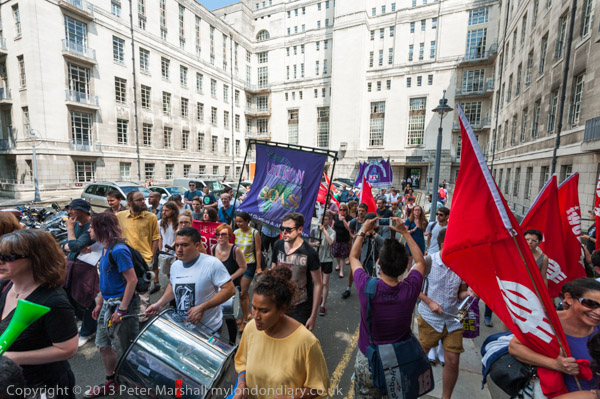
The protest on this day was larger and angrier than usual, as the University had called in police the previous day to handle a student protest – and police had arrested a young woman who had chalked a slogan on a wall plaque, charging her with criminal damage. Chalk was used by the protesters as it causes no damage and is easily wiped off.
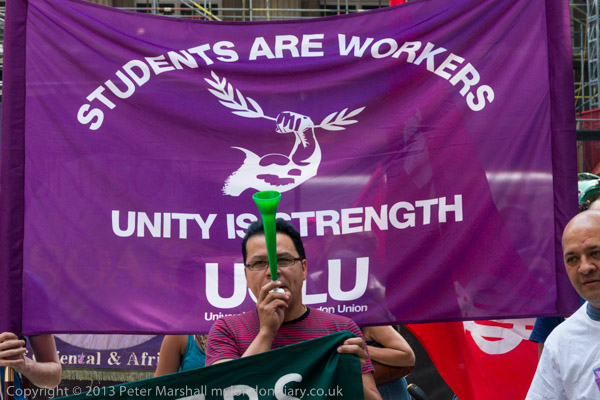
The 3 Cosas campaign has received support from branches and officials of other trade unions, including the RMT and UCU, the university and college teachers. And among those who came to give their support was Green Party Leader Natalie Bennett who spoke briefly before have to rush off to a BBC interview.
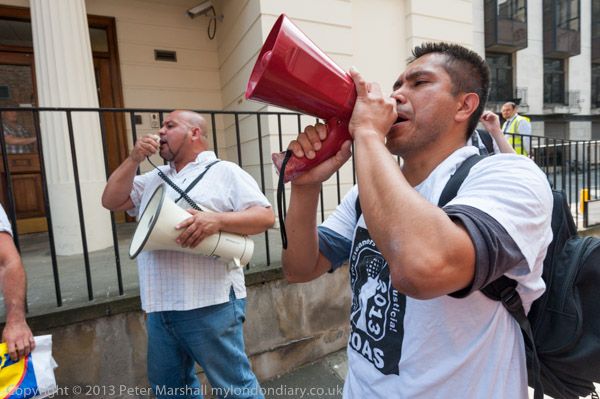
The protest began just outside the Senate House and as Bennett left the protesters moved into the open lobby area underneath the bottom of the building for a noisy few minutes chanting ‘Sick Pay, Holidays, Pensions, Now!’ and other slogans, blowing whistles and horns and using megaphone siren sounds to the accompaniment of some highly dynamic drumming from the SOAS samba band.
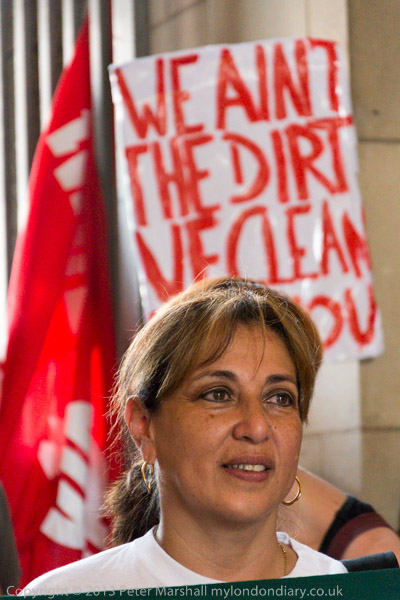
They then walked out from there and marched around the street to the south of the building opposite the British Museum North Entrance where there was a brief rally mainly to make those going into the museum aware of why they were protesting.
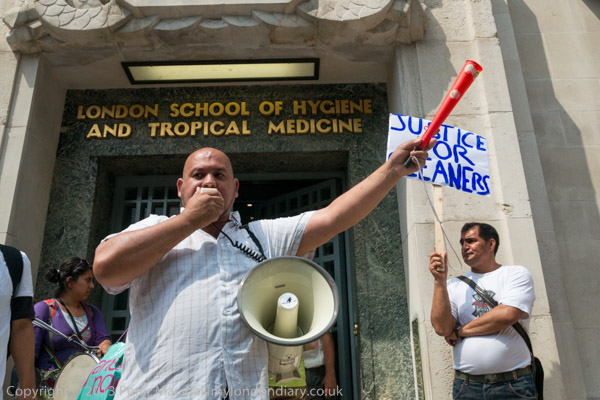
They walked back onto the university site for another noisy protest outside Stewart House, then back underneath Senate House where they stopped to listen to a speech from the ULU Vice-President. IWGB organiser Alberto Durango then invited everyone to go across the road and make their presence felt in front of the London School of Hygiene and Tropical Medicine, where the IWGB is just starting to fight for the cleaners there to get the London Living Wage.
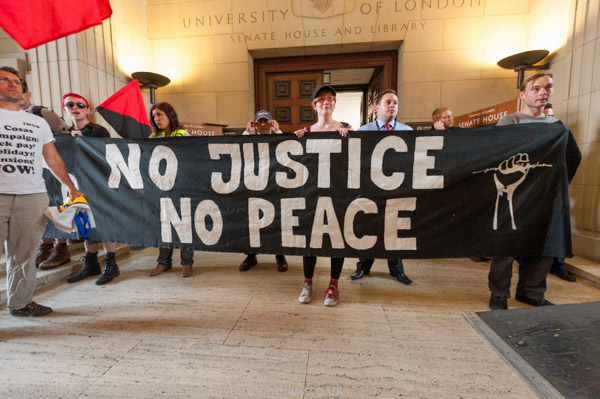
After a few minutes there they returned for a final session at the Senate House for some final speeches. The woman who had been arrested for chalking the previous day was one of those holding a No Justice No Peace’ banner in front of a line of security staff blocking the entrance, and there were calls urging the university to drop the charge of criminal damage, and some of those present chalked slogans on the tarmac in a show of solidarity.
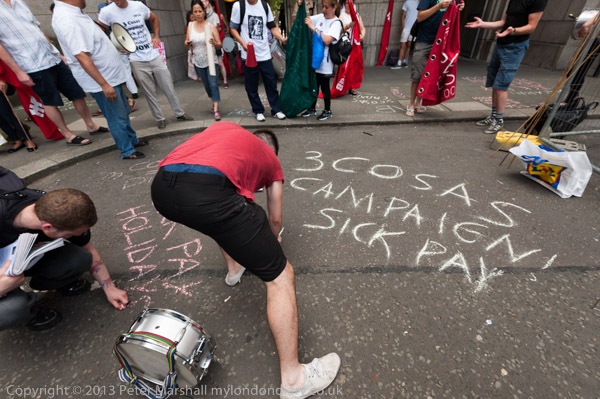
Many more pictures at London University Cleaners Protest
